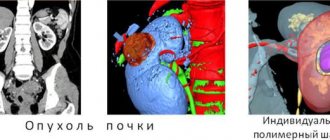Make money on hair: from 20 to 210 rubles.
Advertisements in the style of “I’ll buy hair. “Expensive” a lot in Minsk. Everyone's requirements are different, so it's best to talk to a specialist before selling.
For example, in the hairdressing salon “Lyubavushka” they accept any hair no shorter than 25 cm in length. Here, handmade wigs, hairpieces, extensions, strands and braids are made from the hair.
“You can also get a haircut here: this way we can be sure that the hair is well cut,” they said in “Lyubavushka.” – Our price is by gram: from 20 rubles. per 100 grams. The longer and lighter the hair, the higher the price. From 10 to 30 people donate hair to us per month.
Prices are based on length: 100 grams of hair 25–35 cm costs from 20 to 30 rubles, and from 45 to 50 cm – 150–210 rubles. Blonde natural hair is also valued here: for strands over 40 cm, 20% is added to the price. Hair may not be the most important thing in life, but it takes a long time to grow. If in doubt, it is better to consider other options for earning money.
Kidney transplantation in Belarus: prices, description of the operation
A kidney transplant or transplant is a surgical procedure to replace a diseased organ with a healthy one.
Only a relative of the patient can become a living donor in Belarus, voluntarily and free of charge. If the relative agrees, then one kidney is taken from him. If the kidney is healthy, then with a competent lifestyle, one kidney can easily cope on its own.
Indications for kidney transplantation
The main indication for kidney transplantation is severe chronic renal failure (CRF). With it, the patient needs regular hemodialysis.
Donor eligibility criteria
The following criteria are available:
- the HLA alleles of the patient and the donor match;
- the donor does not have such dangerous infectious diseases as HIV, hepatitis C and B, syphilis;
- ideally, height, gender and weight should match;
- For some hospitals, the same Rh and blood type is an important criterion.
Examination of the recipient before kidney transplantation
- Complete blood tests.
- Kidney examination.
- Electrocardiography and EchoCG.
- CT scan
- Chest X-ray.
- Presence of vector-borne diseases.
- Serological studies.
At the time of the examination, the patient needs to have old tests and epicrisis with him.
Donor examination
- Examination by a dentist, cardiologist, therapist, gynecologist, endocrinologist and nephrologist.
- Ultrasound OBP.
- ECG and EchoCG.
- Kidney research.
- Detection of diseases of the brain and blood vessels.
- Examination by a psychotherapist.
- Laboratory blood tests, such as general and biochemical tests.
- Determination of chronic pathology that harms the donor after organ retrieval.
- HLA antigen compatibility with the recipient.
- Research for other acute pathologies.
Patients with a history of type II diabetes mellitus can undergo a transplant only if a complete diagnosis has been made and future risk has been ruled out.
Obese patients need to lose excess weight to normal levels.
Receiving a donor kidney in Belarus
The donor's kidney is removed using a minimally invasive laparoscopic method using general anesthesia, which reduces the rehabilitation period.
After the intervention, the donor remains in the transplant department for observation for some time. He undergoes all the necessary tests to ensure that the donor’s condition is normal.
And even after he is discharged, the nephrologist continues to monitor the patient.
How does the intervention work?
At the time of hospitalization, the donor must have all the tests and studies performed. In case of a blood type mismatch, the recipient must undergo an antibody neutralization procedure in advance.
Surgery is performed using general anesthesia. The incision is made slightly above the groin area on both sides. Usually the kidney is located in the iliac fossa. If there are no plans for a pancreas transplant in the future, then the donor kidney is placed on the right side; if there is one, then on the left. The recipient's kidneys are usually kept, except in the following cases:
- donor organ transplantation cannot be performed without removing the native kidney due to its parameters;
- there is a constant increase in pressure of renal origin, renal atrophy, complex kidney infection or oncology;
- the recipient's kidney is not healthy (with polycystic disease) and is prone to inflammatory processes and bleeding.
During the operation, the donor's kidney vessels are connected to the patient's kidney vessels, and the ureter is connected to the bladder. The duration of the operation is 3-4 hours.
Postoperative period
After the operation, the patient recovers for two days in the recovery room, after which he is transferred to the department. The transplanted kidney usually starts working after a couple of days, sometimes within a week. In this case, hemodialysis is used.
Until the kidney begins to function normally, the patient must be monitored by a nutritionist and prescribed a diet depending on the amount of urine excreted. To prevent rejection and for better implantation of the new organ, medications are prescribed that reduce the reactivity of the immune system. Therefore, patients become very vulnerable to infectious agents.
If there are no complications, then the patient is discharged on the fifth day. A week later, the patient comes for an examination to have the stitches removed.
Source: https://medicaltour.by/meditsinskie-napravleniya/transplantologiya/transplantatsiya-pochki/
Donate blood: from 100 to 140 rubles.
If you are between 18 and 60 years old, you may want to consider donating blood. But first, find out whether you are healthy to be a donor: the list of contraindications is very long.
Besides illnesses, what other contraindications are there: if you have a tattoo or piercing, then you don’t have to think about donation for another 6 months. For about a year, you cannot donate blood to those who have visited a number of countries: Madagascar, Thailand, Sri Lanka, etc. – the full list can be found here.
Documents: to the examination you need to bring your passport, military ID, and if you are donating blood for the first time, then also a 3x4 photograph, an extract from medical documents, fluorography, results of an ECG and examination by a gynecologist.
How much blood can you donate in a year: men can donate blood 5 times, and women - 4. After each donation there is a break of 60 days.
It’s easier for plasma donors: it can be donated after 2 weeks. The average person has 4-5 liters of blood, and donors donate 450 ml at a time.
– Previously, you could donate 300 milliliters of blood. We are currently stocking standard 450 ml bags. Each package contains a concentrate that goes into the blood. And this dose is designed strictly for this amount,” explained CityDog.by at the Unified Donor Center of the Republican Scientific and Practical Center for Transfusiology and Medical Biotechnology.
Blood prices: they are almost the same - the difference is 2-3 rubles.
For example, in the 6th city clinical hospital, blood is accepted for 100.81 rubles. for 450 ml, and at the Republican Scientific and Practical Center - 103.91 rubles. for 450 ml.
Let's look at the prices at the scientific and practical center: here they are the highest. For plasma taken by manual plasmapheresis from a blood dose of 450 ml, the scientific and practical center gives 124.69 rubles. For plasma from a double portion of blood – 145.47 rubles. You can donate plasma from a smaller amount of blood. True, the price will also decrease.
By the way, a donor can donate both blood cells and red blood cells.
Addresses and telephone numbers of places where you can donate blood
- State Institution “Republican Scientific and Practical Center for Transfusiology and Medical Biotechnology” (Dolginovsky tract, 160), +375 17 289 87 44 (director), +375 17 289 01 06 (reception).
- City Center for Transfusiology City Clinical Hospital 6 (Uralskaya St., 5), +375 17 245 44 87.
- Blood Transfusion Department of the 5th City Clinical Hospital (Filatova St., 9), 375 17 295 32 80.
- Blood Transfusion Department of the 9th City Clinical Hospital (Semashko St., 8), +375 17 272 46 92.
- Blood transfusion department of the city clinical emergency medical hospital, (Kizhevatova, 58), +375 17 287 00 12.
- Blood transfusion department of the Minsk Regional Clinical Hospital, Minsk district, Lesnoy a/g, +375 17 265 25 58.
And most importantly: if you feel unwell after donating blood, it is better not to take public transport home.
In Minsk, kidneys from fathers were twice transplanted to children, so as not to transfer them to hemodialysis
Belarus is among the top 20 leading countries in transplantology. For every million inhabitants, we perform at least 50 “last resort operations”! Moreover, for the last 10 years, doctors have been breaking their own records every year: for example, if 286 organs were transplanted in 2014, then in 2015 - 333, and in 2016 - 486. For obvious reasons, pediatric transplantology is in the shadow of adult transplantology: it arose much later and operations are performed much less frequently. But there is so much at stake here that it is a very special challenge for both the family and the doctors. And sometimes double. When there are two relatives on the operating table at once.
The first related kidney transplants for children in our country were carried out back in 2009: the patients were Stas Kovalchuk, whose father donated the organ to him, and Ruslan Mikhailov, whose mother became the donor. The need to master such operations was felt very urgently at that time. 37 children were “attached” to an “artificial kidney” device, many had been on hemodialysis or peritoneal dialysis for more than 5 years, and although such therapy supports the body, at the same time it mercilessly destroys it. Doctors urgently needed to save little patients... They relied on family donation, but when they began to test the waters in families, they were faced with a surprise: only three parents decided to donate an organ to their own children...
— Just at this time there was a rise in the adult transplant service, and it so happened that children were included in the state organ transplantation program, and we began to prepare for the first transplant. I was involved in the selection of donor-recipient pairs,
- Consultant nephrologist at the Republican Center for Pediatric Nephrology and Renal Replacement Therapy Sergei Bayko recalls the events of eight years ago.
“I told my parents everything as it was: I explained that a famous surgeon from Oxford and two nephrologist consultants were coming to us to support our team.
Guys, you can't miss this chance! In response, moms and dads just shook their heads: we don’t want experiments with our children. But three parents trusted the doctors and agreed to become kidney donors, unconditionally. One boy, however, had questions regarding urology that had to be resolved before the transplantation, and for about six months he was prepared for the operation. During this time, the parents never had any doubts, they did not change their decision: in the fall we carried out the transplant. The other two boys received kidney transplants six months earlier. The operations were successful and from that very moment became almost routine. Why did the parents not agree to become donors? Doctors do not dare to speculate. In a sense, the fear of adults is understandable: surgery is not an easy task, no one excludes risks, even with highly qualified specialists - they exist even during the treatment of banal pulpitis, let alone a transplant. Postoperative death, complications, chronic disorders - anything can happen! In general, it is quite difficult to dare to take such a step. It’s one thing if only the parent’s body is suitable for the child—the decision is made faster. And it’s completely different when there is a probability of a match in all respects with the deceased donor - isn’t it worth waiting a little? Today, by the way, young patients are on the waiting list for about six months - donor kidneys are found for them quite quickly, because pediatric transplants are our priority...
Doctor Sergey Bayko.
Photo by Arthur PRUPAS. — Of course, parents ask a lot of questions.
Most often, if the family has decided that one of the spouses will be a donor, the second one is more worried. Will my husband or wife remain disabled for life? Will there be two patients in the family after transplantation instead of one? “Sergei Valerievich explains to every couple: with one kidney a person can live a long and comfortable life, of course, if he follows all the doctors’ recommendations.
“And of course, kidney transplantation from a living donor has many advantages.
Firstly, the child will be prescribed a less aggressive immunosuppression regimen, and secondly, even if we compare a cadaveric kidney that is suitable for all six antigens and a related one that is suitable for only three, the survival rate of the latter will be better. Among the advantages is this: if a related donor is found, the kidney can be transplanted even before dialysis begins. Today, by the way, doctors are betting on related pre-dialysis transplantation: seeing that a child may need an “artificial kidney” in the near future, they invite parents to think about whether they are ready to become a donor? Two similar operations have already been carried out in Minsk: in both cases, the fathers went for the operation.
— Dialysis, of course, maintains life and replaces kidney function. But the main goal is still transplantation, because prolonged stay on dialysis can lead to various complications - infectious, from the cardiovascular system and others. Therefore, the worldwide trend is to perform a transplant before starting maintenance therapy. Then the new kidney will live longer. This means that the next operation will be delayed for several years.
In Norway, by the way, 66% of kidney transplants are performed before the start of hemodialysis, and in every fourth operation an organ from a relative is used. In our country, on average, 10 children a year require renal replacement therapy. Most have a congenital or hereditary pathology, and this error can only be corrected by a transplant. There is everything necessary to carry out such operations - all you need is a sincere desire of the parents to share a part of themselves with the child.
HINTS TO THE PROBLEM
Arseniy was born with a rare pathology: his kidneys did not work, toxins accumulated in the blood. During the first year of life, almost all types of dialysis were used. Only at the age of seven months the boy was discharged home, however, the parents also took with them a cycler - a machine for peritoneal dialysis, with the help of which a special solution was injected into the abdominal cavity to cleanse the blood of toxins. Until the age of two, Arseny was fed exclusively through a tube: he was so used to it that he did not pay any attention to the special tube inserted into his nose - he continued to watch cartoons. Despite all the difficulties, he grew, developed, and eventually began to eat himself. Thus, four years passed in a constant struggle for life. The doctors were amazed: the parents - amazingly scrupulous, meticulous people, under the strict guidance of specialists, were able to raise the boy to the age when he could think about a transplant. They came to the center and said that my father was ready to become a donor. Arseny’s dad is quite tall, they doubted whether the kidney would fit. It turned out that it fits quite well into the child’s abdominal cavity. The operation was successful, there were no complications, and the boy was soon discharged. And a few days later, Sergei Bayko received a call from a concerned mother, saying that there was a problem: it turned out that the child tried to lift something heavy, and the stitches came apart. Fortunately, the parents did not panic: they covered the tummy with sterile napkins and brought their son to the clinic. The stitches were put in again... Now Arseny, probably born under a lucky star, is like family in the center to everyone. During his life, doctors fought more than once and did not lose the battle.
“Arseny is 9 years old today: he travels, sends me photographs from resorts,” Sergei Bayko smiles. “And this unique case showed: a child without virtually any kidneys can be kept on dialysis from birth to transplantation. It is important not to lose hope and trust doctors.
NUMBERS "SB"
Since the start of the kidney transplant program for children in April 2009, 132 kidneys have been transplanted in the country, 16 operations were performed last year. About 10% of all transplants are related. In 2009, 8 operations were performed, in 2010 - 12, in 2011 - 21, in 2012 - 14.
Donate sperm or eggs: wow, how much does it cost!
Belarus has its own oocyte and sperm banks. Women can be donors from 18 to 35 years old, and men - from 18 to 40. Women donors have one more requirement-limitation - a born child.
– Here you can donate an egg no more than 5 times. Our experts recommend becoming an oocyte donor no more than three times, keeping a break of 3–5 months. Ejaculate donors can donate their biological material 5 times. By the way, many men donate sperm for free, they told us at the Eva Clinic.
Before donating eggs, the donor takes hormonal medications for 8–12 days. The procedure itself takes 20 minutes under intravenous anesthesia. A thin needle is used to remove follicular fluid from the woman’s body (it protects and nourishes the egg) and the egg itself.
At Eva Clinic, a donor receives 2,500 rubles for an egg. , and for donated sperm – 100 rubles. one-time
Reproduction of CityDog.by materials is possible only with the written permission of the editors. Details here.










